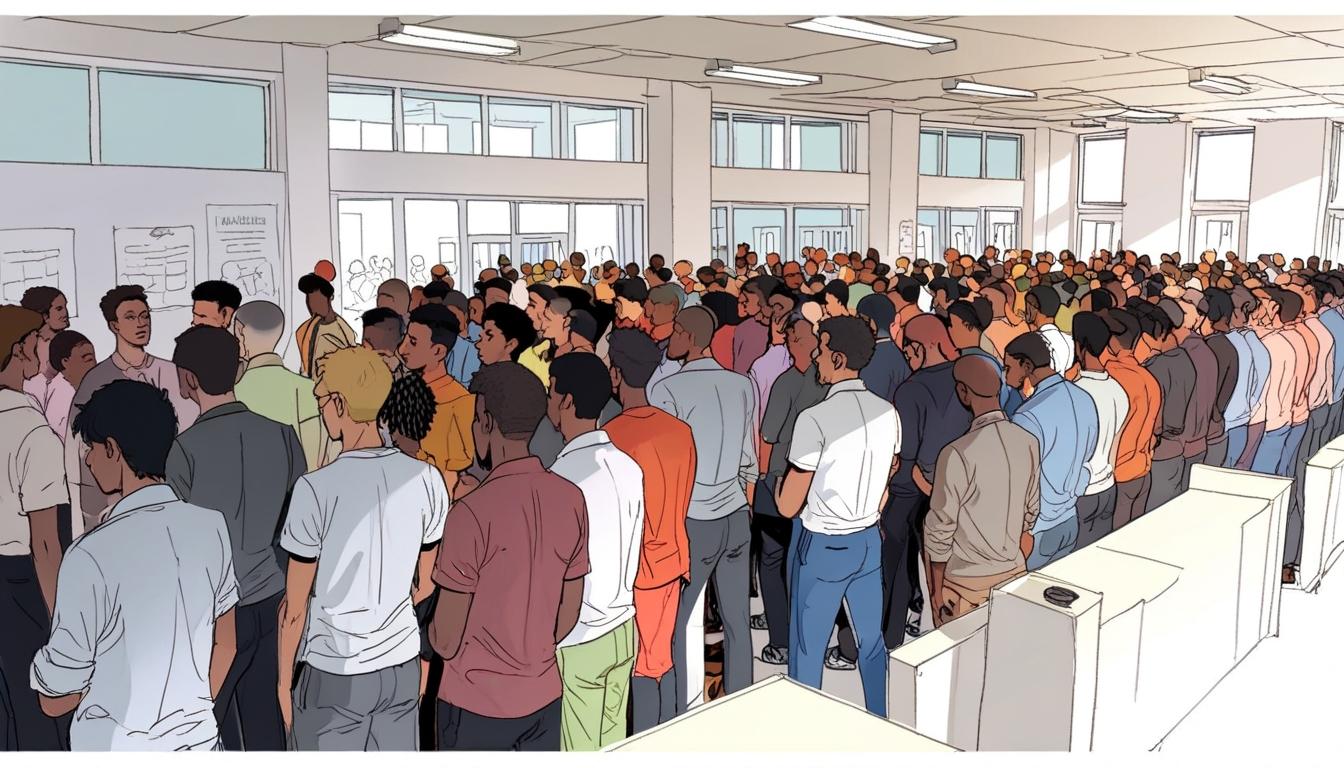Official figures indicate a significant increase in asylum applications to the UK, with 2024 seeing the total number rise to 108,000. This surge is characterised by claims from individuals in both conflict-affected and relatively stable regions, including citizens from the United States, Australia, and Scandinavian countries.
The data reveals that Pakistan was the leading country of origin among applicants, contributing 10,542 claims. This was closely followed by Afghanistan (8,508), Iran (8,099), Bangladesh (7,225), and Syria (6,680). Together, these five nations accounted for 38 per cent of all asylum applications last year. The report also highlighted a resurgence of asylum claims from wealthier Western countries, with 99 claims from the US, and smaller numbers from Italy, Portugal, France, and Australia.
Critics of the asylum system, including Robert Bates from the Centre for Migration Control, argue that the influx from affluent nations suggests the UK has become a 'soft touch' for asylum seekers. Bates stated to MailOnline that "our asylum system is far too generous... capable of weeding out individuals who are simply economic migrants." He contended that genuine asylum seekers would typically seek refuge in neighbouring countries rather than those far removed like the UK.
In 2024, the UK Home Office reported that applicants must demonstrate a well-founded fear of persecution in their country of origin due to factors such as race, religion, sexual orientation, or political beliefs to qualify for asylum. The approval rates for US applicants, for instance, were notably low, with only 13 out of 58 initial claims being granted, resulting in a mere 22 per cent approval rate. Conversely, claims stemming from countries embroiled in conflict, such as Syria and Sudan, saw an approval rate upwards of 90 per cent.
The asylum applications’ data also reveal demographic trends, indicating that approximately 75 per cent of applicants were male, while two-thirds were under the age of 30. This has contributed to a broader conversation about the age and gender profiles of asylum seekers entering the UK.
Financially, the burden of the asylum system on the UK taxpayer has been substantial, with reported expenditures reaching £5.4 billion, including housing asylum seekers in hotels and providing them with welfare assistance. In the past, the annual cost of the system was approximately £732 million but has dramatically escalated in light of the increasing number of small boat crossings in the English Channel, which have become a significant mode of entry for asylum seekers.
The surge in illegal crossings has reportedly encouraged criminal gangs to exploit the situation, with many individuals reportedly paying considerable sums to secure passage to the UK. In 2024 alone, the increase in asylum claims from individuals who had previously entered under legal routes, such as student visas, has been stark, rising from 53 claims in 2022 to 5,300 in the first ten months of last year.
Alp Mehmet, chairman of Migration Watch UK, has voiced concerns about the diverse nationalities lodging claims, labelling the UK as a soft touch and asserting that the current system is unsustainable. He emphasised that unless the government acknowledges the shortcomings of its policies, the trends of illegal migration and escalating costs are likely to continue.
When initial asylum applications are denied, there exists an appeals process where rejected applicants can contest the decision. However, the Refugee Council has raised concerns about the quality of the decision-making process, stating that a number of refugees find it necessary to appeal government decisions.
Given the growing complexity of the asylum landscape, the UK government has stated its commitment to rectifying the ongoing strains within the system. The Home Office is focused on the removal of individuals who do not possess legal rights to remain in the country and indicated that they have returned 6,781 failed asylum seekers since the last election.
Overall, the asylum situation in the UK reflects a confluence of factors including geopolitical instability, economic considerations, and domestic policy challenges—a landscape that continues to evolve amidst ongoing debates about immigration and border control.
Source: Noah Wire Services
